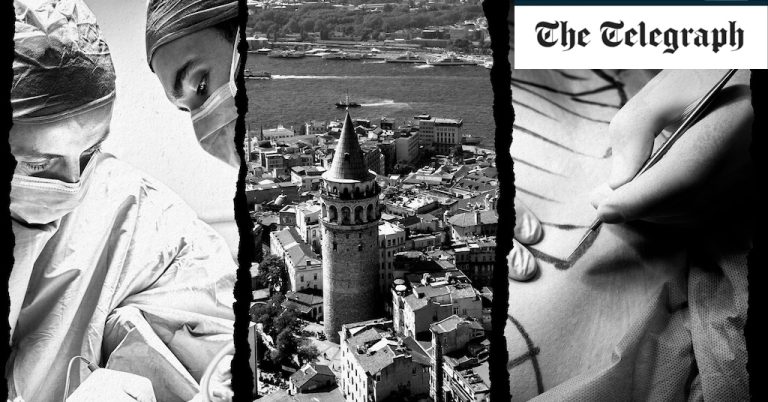Dr Ash Soni is a plastic and reconstructive surgeon with clinics in Ascot, Berkshire and London. “As a trend in general, people are looking at European countries to go to just to save money,” he says, with Turkey being the most popular destination. “And I can tell you that we get calls every month from people who have gone and had a problem or a complication from those countries. People do it to save money, but with the issues that can arise, they have to call someone [closer to home] to take care of it anyway.”
He admits this is a challenge for the industry. Surgeons caring for international patients with more disposable income – for Soni, that includes patients traveling from Dubai – fare better than those treating only UK patients, who spend less overall. “I’m grateful that my clinics, especially my London-based clinics, target both a UK and an international audience,” he says. “That helps with the number of procedures I end up doing each day.”
Meanwhile, Britons – particularly younger women – continue to travel to cheaper countries in Europe, where results can vary widely. Patients who opt for a reduced-price package abroad can “generally expect a worse outcome,” says Soni. In the UK, it takes 10-15 years of training to become a specialist, while some in Turkey may have trained for as little as three years. Soni adds that some clinics offer non-surgical procedures like fillers or Botox for “less than I buy my stuff, which tells you everything about [materials] they use in this clinic.”
“You can generally expect that the conditions won’t be the same as they would be here,” he says. “People throw in a hotel room and all that, but when push comes to shove and there’s a problem that develops as a result of that, patients are held captive.” In the UK “you pay for the ability of the provider and the quality of the products used”.
Soni is one of many professionals and experts who have raised concerns about the safety of certain procedures abroad. At the more extreme end of the spectrum, there have been rumors of surgeons conducting consultations primarily via WhatsApp and not providing adequate follow-up care. At least 25 British citizens have died after surgery in Turkey in the past four years.
This does not mean that most patients who have visited Turkish clinics are not happy with the results. Green used the Clinic Center and says, “I’m confident in the level of support they offered.” He had a remarkably quick recovery: “They dropped me back at my hotel the next day and provided a translator so I could understand everything that was happening. I was up within three or four hours after my surgery,” he says. “The next day, I was out of the hospital, shopping, everything. I had a check-up appointment two days after my surgery.” Her procedure involved a four-night stay in hospital (the NHS recommends not flying for five to seven days after breast surgery).
Like many people, Green heard about the clinic through social media: “I follow celebrities on Instagram and I saw one person, a Hollyoaks and Coronation Street star, had used the same clinic [in Turkey]. So I went with them.”
For her, it was worth taking the risk of flying abroad for a better deal. “It boosted my confidence. now i don’t mind wearing low cut tops and dresses. I’m happy to wear a bikini on holiday.” Compared to sun, sand and cut-price surgery, British surgeons simply can’t compete.

